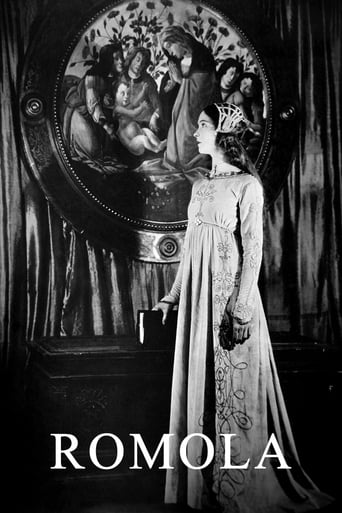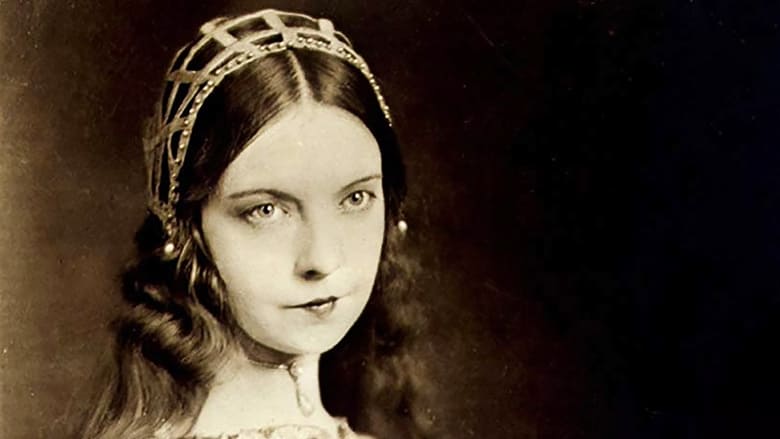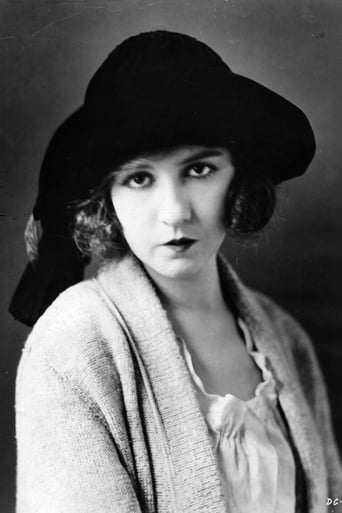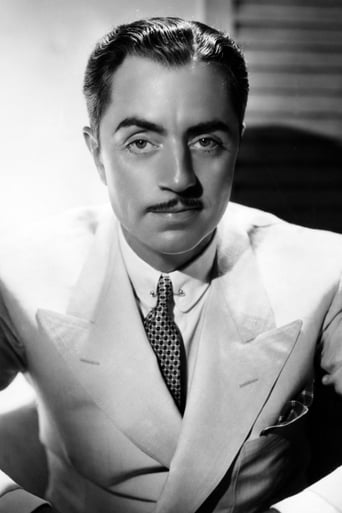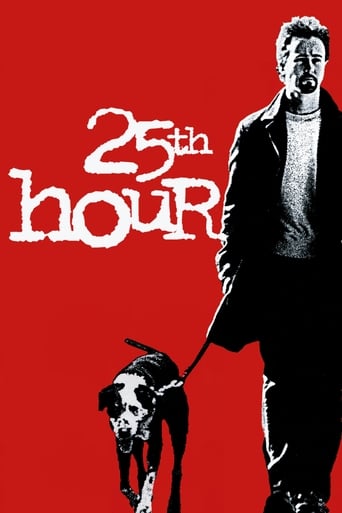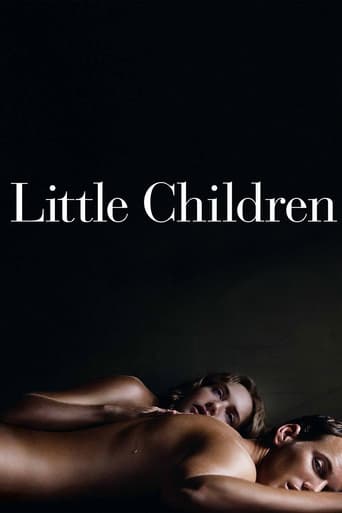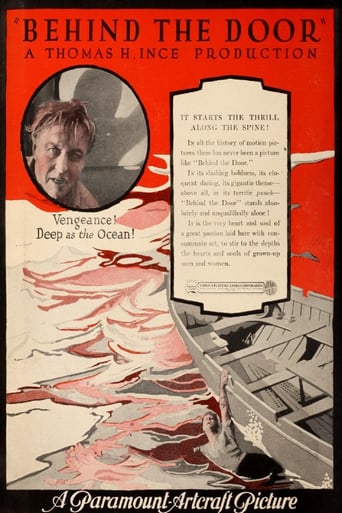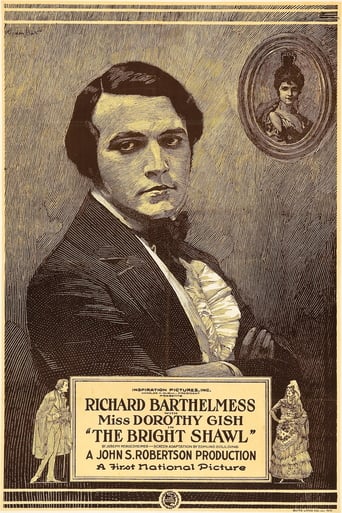Romola (1924)
In Renaissance Florence, a Florentine trader meets a shipwrecked stranger, who introduces himself as Tito Melema, a young Italianate-Greek scholar. Tito becomes acquainted with several other Florentines, including Nello the barber and a young girl named Tessa. He is also introduced to a blind scholar named Bardo de' Bardi, and his daughter Romola. As Tito becomes settled in Florence, assisting Bardo with classical studies, he falls in love with Romola.
Watch Trailer
Cast


Similar titles
Reviews
Expected more
I like movies that are aware of what they are selling... without [any] greater aspirations than to make people laugh and that's it.
The performances transcend the film's tropes, grounding it in characters that feel more complete than this subgenre often produces.
The film creates a perfect balance between action and depth of basic needs, in the midst of an infertile atmosphere.
Period piece based on the novel by George Eliot. And what a period piece it is! MGM must have spent a ton of money recreating the costumes, atmosphere and architecture of 15th century Florence. The detail is meticulous and lends the feeling of a modern production taking place 6 centuries ago. I have not read the book but I wonder if it reads better than it translates to the big screen. The film is long - longer than most films of the silent era, and at times tends toward tedium. In fact, it is downright dull in spots, and those spots overtake those of interest. Makes you think it could have a used a little heavier hand in the cutting room. The cast is excellent, and once again William Powell plays the villain of the piece and steals the show. The Gish sisters never looked more attractive, especially Dorothy. Ronald Colman was stalwart but overshadowed by Powell. On whole, it is entertaining and sumptuously mounted but be aware of above-mentioned lapses in the narrative.7/10 - The website no longer prints my star rating.
"He is the traitor of traitors -- the liar of liars --"A mysterious stranger appears in 15th Century Florence and overturns the apple cart. Tito (William Powell) presents an outward appeal that does not reveal his Machiavellian intentions, as he charms his way into Florentine society.In her second film with director Henry King, Lillian Gish was cast as the title character and moral compass of George Eliot's mid-Victorian novel, a tale of social, cultural and religious upheaval set in Renaissance Italy. Sister Dorothy once again played a mirror opposite, the dark-eyed, simple-minded street urchin Tessa, who virtually steals the show. Considered a "prestige" film by it's newly incorporated distributor MGM, Romola made extensive use of exceptionally beautiful locations in and around Florence, with flocks of birds and a host of eager, well costumed Italian extras, masterfully arranged and photographed by King. The oddly altered scenario, typical of Hollywood, is a staid but entertaining reinterpretation of Eliot's Bonfire of The Vanities.Notes on the noteworthy Tessa's introduction is particularly lovely, as Tito wakes her with a kiss on the nose. They later share a beautiful scene on the banks of the Arno with the Ponte Vecchio in the background. While Eliot incorporated actual events into her novel, this fast and loose re-write may confuse history buffs. Without giving away too much, it seems screenwriter Will M. Ritchey has juggled the idea of several events, while significantly altered, to create a spectacular ending. King went to great lengths, making full use of the location, from expertly framed scenes with the Duomo prominently displayed as the background, to numerous side streets and country lanes. One shot of a large crowd passing through an arch with the dome behind them as a flock of birds fly past overhead is absolutely breathtaking!
In Florence, Italy, during the Renaissance, Lillian Gish (as Romola) lives with her blind father Bonaventura Ibáñez (as Bardo Bardi), who is a friend of Savonarola, Michelangelo, and Leonardo da Vinci. Although they are not too wealthy, the Bardis have one of the world's best libraries. Young sculptor Ronald Colman (as Carlo Bucellini) is interested in the lovely Lillian, but she is interested in more scholarly pursuits; this makes her an easy mark for shipwrecked sham scholar William Powell (as Tito Melema). Before Mr. Powell cleans up for his meeting with Lillian, he meets simple street maid Dorothy Gish (as Tessa). Dorothy is quite taken with the dashing Powell; then, so is Lillian. Can he marry them both? Henry King's "Romola" makes a fine silent film, thanks to lavish location production values, and a winning cast. The title notwithstanding, the film focuses on the intermarrying three characters played by Lillian Gish, William Powell, and Dorothy Gish. Close to the film's end, the three have some great on screen conflict time together; and, Lillian performs a cathartic moment exceptionally well. An exciting ending follows. Curiously, Powell's "Tito" character seems to be the story's main protagonist, arguably, until the end; surely, the original George Eliot novel was more focused on "Romola".
I guess this isn't an awful film, but after recently viewing it, I was struck by how it really needed that Griffith touch. Especially since the script was something Griffith would have done. But they missed out on any chance for true suspense by neglecting everything they should have learned from Griffith about climactic cross-cutting.Wow...I feel like I'm turning into a film geek or something. (I guess I like Griffith more than I thought...or I've just seen too many of his films.)Anyway, if you want to see a movie worth watching with the Sisters Gish (and who doesn't??), watch (or re-watch) Orphans of the Storm. View this only as a comparison as to why Griffith was truly a master.

